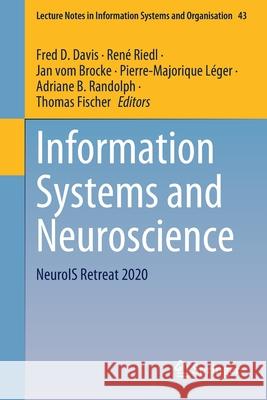Information Systems and Neuroscience: Neurois Retreat 2020 » książka
topmenu
Information Systems and Neuroscience: Neurois Retreat 2020
ISBN-13: 9783030600723 / Angielski / Miękka / 2020 / 364 str.
Kategorie:
Kategorie BISAC:
Wydawca:
Springer
Seria wydawnicza:
Język:
Angielski
ISBN-13:
9783030600723
Rok wydania:
2020
Wydanie:
2020
Numer serii:
000456444
Ilość stron:
364
Waga:
0.53 kg
Wymiary:
23.39 x 15.6 x 2.01
Oprawa:
Miękka
Wolumenów:
01
Dodatkowe informacje:
Wydanie ilustrowane











